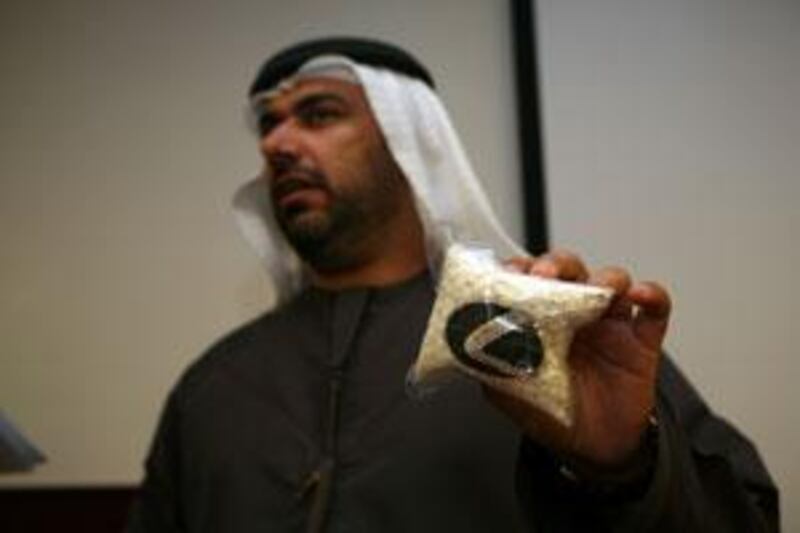DUBAI // An Arab man has been charged with possession with intent to sell 4.2 million fake Captagon pills following Dubai's biggest seizure of the amphetamines. The unidentified suspect, who was arrested on November 11 last year, allegedly smuggled the pills into the UAE in 148 textile rolls through the Jebel Ali Port and stored them in a warehouse in Al Ghusais.
An Interpol notice will be issued for another person believed to be residing in an Arab country who is suspected of masterminding the operation, said Waleed al Fuqai, the head of narcotics prosecution in Dubai. He declined to provide specifics. The pills - stamped with a Lexus car logo - are believed to be fenethylline, a prescription drug sold under the brand name Captagon. The drug, which is on the UAE's controlled drugs and narcotics list, has become a popular among recreational users in the Arab world, and is also used by women as a weight-loss aid and students who want to stay awake while cramming for examinations.
The drugs were to be re-exported, prosecutors said yesterday at a press conference. The defendant allegedly stored most of the drugs in 4,200 bags, each of which contained more than 900 pills. Police estimated they could have been sold on the street for Dh210 million (US$57.2m). The defendant was also charged with consumption of narcotics, possession of psychotropic drugs and consumption of psychotropic drugs. He could face a life sentence if convicted.
The drugs arrived on board a ship and were to be transferred to Saudi Arabia, Dubai Police said last November. Major Gen Abdul Jalil Mahdi, the head of the anti-narcotics department, said at that time that a three-week operation led to the seizure, which was prompted by a tip-off from Saudi authorities. A UN Office on Drugs and Crime (UNODC) report issued in July 2008 said that Saudi Arabia had experienced a sharp rise in Captagon abuse.
Saudi authorities seized 12.3 tonnes of the drug in 2006 compared with 291kg just three years earlier, the report said. The UN office also ranked Saudi Arabia as the biggest consumer of stimulants in the region. Such stimulants are often trucked in from Bulgaria and Turkey through Syria and Jordan before being distributed throughout the Gulf, the UNODC report said. Mr al Fuqai said local consumption of Captagon has declined in recent years.
"The seizures, arrests and prosecutions made reduced and slowed down the trade in the country and a notable decline has been registered," he said. "Pills used to cost five to 10 dirhams before and now they are sold at 30 to 50 dirhams, which proves the decline in its numbers." Almost 1,500 people were arrested in Dubai last year for drug peddling, consumption and possession, Major Gen Mahdi said. There is a zero-tolerance policy on drug use in the UAE.
@Email:amustafa@thenational.ae






